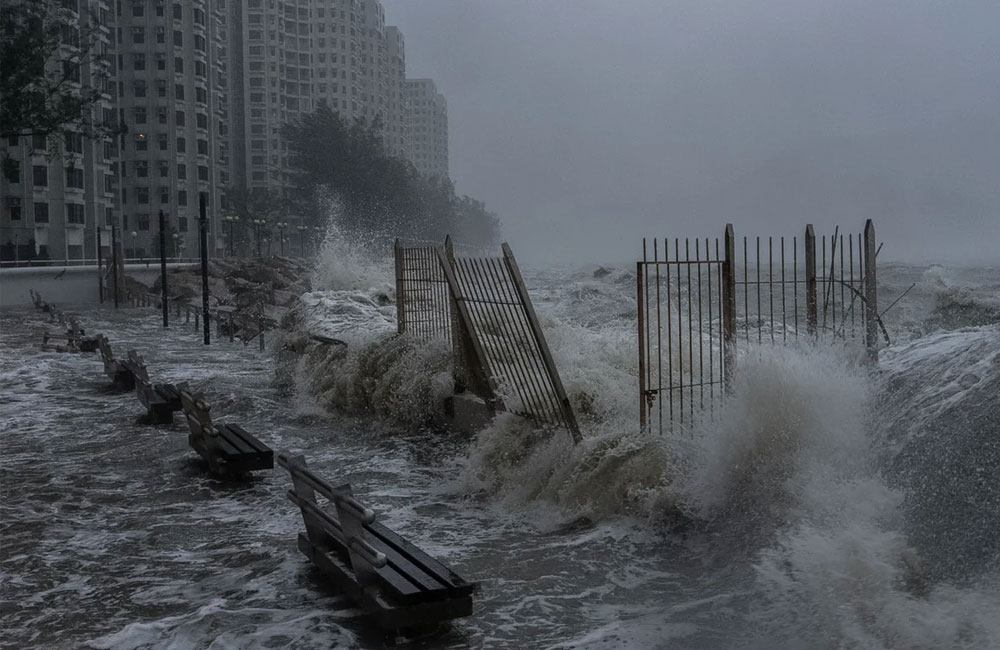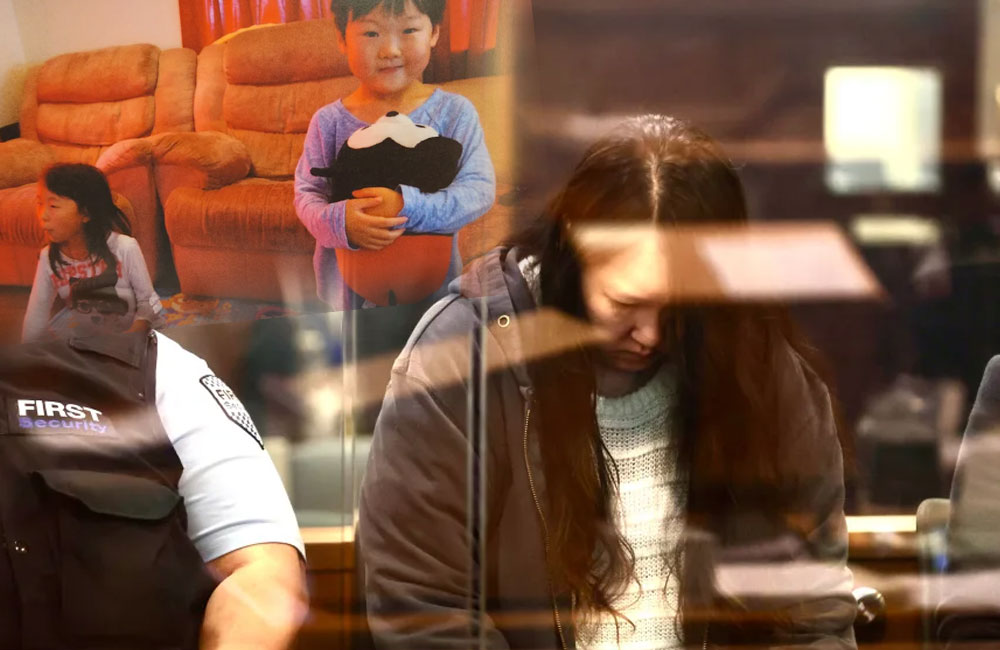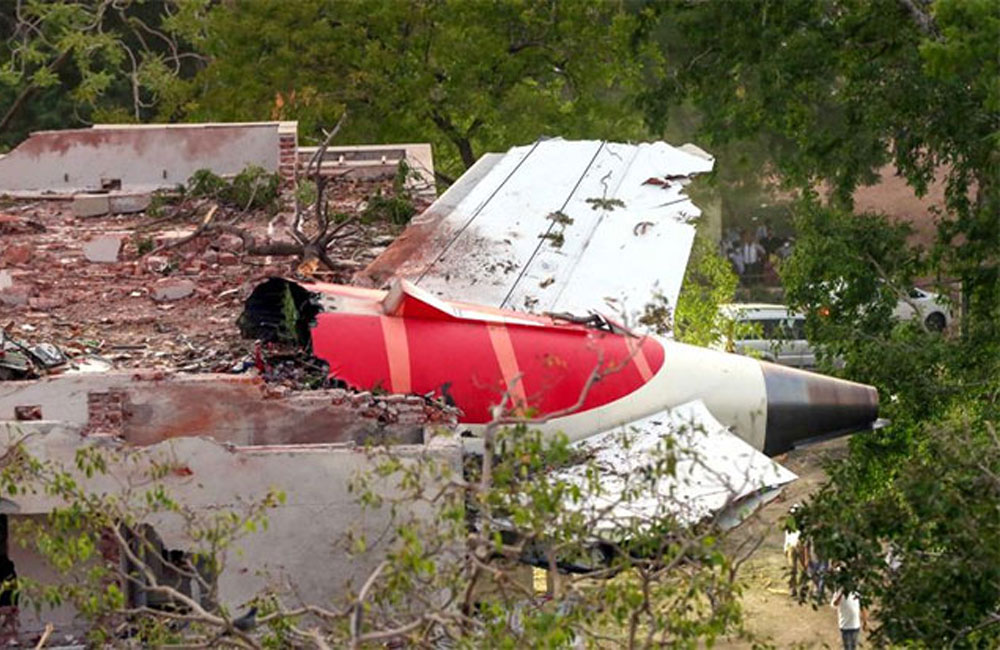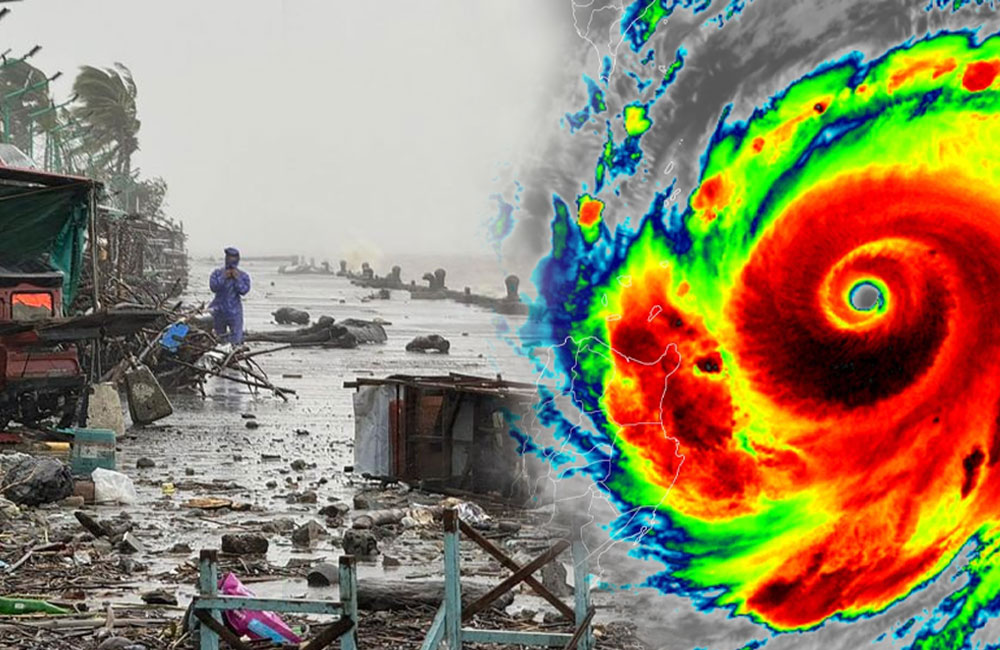World

Gaza City Residents Hit by Israeli Strikes
Over 80 people have been killed in Israeli attacks on the Gaza Strip yesterday.
According to foreign media reports, most of the victims were residents of Gaza City.
On the night of the 24th, an attack on a building and a shelter housing families in Gaza killed around 20 people, including women and children.
Israel stated that these attacks targeted Hamas fighters.

Israel Has No Right to Invade Other Countries – Iranian President
Iranian President Masoud Pezeshkian has said that Israel has no right to invade other countries.
He made this remark while rejecting Israeli Prime Minister Benjamin Netanyahu’s so-called “Greater Israel” plan, which is said to include neighboring lands.
The Iranian President expressed these views during an interview with a Chinese media outlet.
He also strongly criticized Israel’s activities in the Middle East region.
In addition, he condemned U.S. support for Israel, stressing that other countries should not remain silent about Israel’s illegal, unjust, and inhumane actions.

New flood fears spook evacuees after Super Typhoon Ragasa kills 14 in Taiwan
Residents in an eastern Taiwan town where flooding from a strong typhoon killed 14 people took to shelters on Wednesday fearing further disaster, as Premier Cho Jung-tai called for an inquiry into what went wrong with evacuation orders.
Sub-tropical Taiwan, frequently hit by typhoons, normally has a well-oiled disaster mechanism that averts mass casualties by moving people out of potential danger zones quickly.
But many residents in Guangfu, an inundated town in the beauty spot of Hualien thronged by tourists, said there was insufficient warning when the lake overflowed during Tuesday's torrential rains brought by Super Typhoon Ragasa.
Cho said the immediate priority was to find the 129 still missing - a number that climbed to 152 after he spoke - but questions remained. "For the 14 who have tragically passed away, we must investigate why evacuation orders were not carried out in the designated areas," he told reporters in Guangfu.
"This is not about assigning blame, but about uncovering the truth."
The barrier lake, formed by landslides triggered by earlier heavy rain in the island's sparsely populated east, burst its banks to send a wall of water into Guangfu.
As heavy rain continued on and off in Hualien, police cars sounded sirens for a new flood warning in Guangfu on Wednesday, sending people scrambling for safer areas as residents and rescuers shouted, "The flood waters are coming, run fast."
"We will not return until the overflow is finished or the risk of it bursting is reduced. It's too dangerous," said a woman who gave her family name as Tsai from a packed emergency shelter in an elementary school.
Deputy disaster command centre chief Huang Chao-chin said with rainfall easing and much of the water from the lake already released, he did not expect a repeat of Tuesday's mass flooding.
Lamen Panay, a Hualien councillor, said government evacuation requests before the flood had not been mandatory.
Referring to guidance for people to head to higher floors, she said, "What we were facing wasn't something 'vertical evacuation' could resolve."
Taiwan has been lashed since Monday by the outer rim of Typhoon Ragasa, which was downgraded from a super typhoon and is now hitting China's southern coast and the Asian financial hub of Hong Kong.
LIKE A 'TSUNAMI'
The water hit like a "tsunami", said Guangfu postman Hsieh Chien-tung, who was able to flee to the second floor of the post office just in time. Later, he got home to find his car had been swept into the living-room.
Fire officials said all the dead and missing were in Guangfu, where the waters destroyed a major road bridge across a river.
Regions across Taiwan have dispatched rescue teams to Hualien, with the military sending 340 troops to help.
In Guangfu, soldiers operating from an armoured personnel carrier to keep clear of thick mud in the streets went door-to-door handing out water and instant noodles. Wrecked cars and scooters were littered around.
About 5,200 people, or 60% of the population, sought shelter on the higher floors of their own homes while most of the rest left to stay with families, government data showed.
The government said the overflow of the barrier lake released about 60 million tonnes of an estimated 91 million tonnes of water, enough to fill about 36,000 Olympic-sized swimming pools.
China's Taiwan Affairs Office offered condolences, in a rare sign of goodwill from Beijing, which has a deep dislike of Taipei's government.
China views Taiwan as its own territory, despite the strong objections of the island's democratically-elected government.
Besides the wilderness beauty that makes it one of Taiwan's top tourist draws, Hualien is also home to many members of the island's indigenous groups, including the Amis.
The typhoon brought about 70 cm (28 inches) of rain to Taiwan's east, though the populous west coast, home to the crucial semiconductor industry, was not affected.
In 2009, Typhoon Morakot brought destruction to Taiwan's south, killing about 700 and causing damage of up to $3 billion.

Cyberattack Disrupts Operations at Several European Airports
A cyberattack has disrupted operations at several major airports across Europe.
Airports including Heathrow, Brussels, and Berlin have been affected, according to foreign media reports. The attack targeted an online system used for boarding passengers onto flights.
As a result, delays and cancellations have occurred. However, airport authorities say steps are being taken to restore normal operations as quickly as possible.

Okahoma tiger handler killed in front of family during show: Everything we know so far
The animal handler who was fatally mauled by a tiger in Oklahoma last week was killed as horrified onlookers – including his wife and daughter – watched during a big cat show, officials said Monday.
According to the Associated Press, the tiger attacked Ryan Easley, 37, at the end of a performance on Sept. 20 at Growler Pines Tiger Preserve near Hugo, Oklahoma.
Facility tours are canceled until further notice, the preserve posted, asking for privacy and compassion for Easley's family.
Easley's passing was also acknowledged by former zookeeper Joseph Maldonado, more popularly known as Joe Exotic, profiled in the smash hit Netflix documentary series "Tiger King." Maldonado is serving a 21-year sentence at Fort Worth's Federal Medical Center after he was convicted in a highly-publicized murder-for-hire case.
Tiger attack in Hugo, Oklahoma
More details of how the attack occurred have emerged since the incident on Sept. 20.
Choctaw County Sheriff Terry Park told the AP that the tiger "unexpectedly started to bite" during the big cat show, and the tiger then shook Easley while the two were inside a larger cage.
The Sheriff noted that Easley's wife and young daughter were present when the attack happened.
The Growler Pines Tiger Preserve, in its statement Sunday, wrote that Easley's "love for animals, especially Big Cats, was evident in every aspect of his life," saying that his legacy would live on in the example he set for others also passionate about wildlife.
Joe Exotic shares thoughts on Easley
Joseph Maldonado, mostly known as Joe Exotic, noted Easley's death saying that he would be praying for his family.
"Prayers go out to his family," Maldonado said in since-removed posts on Instagram and Facebook. "Ryan took great care of his animals! He loved everyone of those tigers and was an advocate for tigers as well as elephants."
In another Facebook post Sunday afternoon, Maldonado shared a link to PETA's statement and disputed some of the organization's claims.
"Always got to lie and drag me into everything," Maldonado wrote. "Ryan built a huge compound to keep his tigers in on the backside of my zoo. PeTa (sic) doesn't know crap."
Since his death, PETA has made a statement regarding apex predators and wild animal exhibitors.
"It’s never safe for humans to interact directly with apex predators, and it’s never a surprise when a human is attacked by a stressed big cat who has been caged, whipped, and denied everything natural and important to them. PETA is calling for the remaining wild animal exhibitors who aren’t dead or in federal prison to get out of the business now and send the animals to accredited sanctuaries where they can finally live in peace," said Debbie Metzler, PETA Foundation's senior director of captive wildlife.
As the tigers are not native to Oklahoma, they had to receive a permit from the U.S. Department of Agriculture and the U.S. Fish and Wildlife Service, according to AP reports.
Can you own a tiger in Oklahoma? Exotic pet laws
In Oklahoma City, city ordinances do allow for exotic animals, but only under certain criteria.
People are generally banned from owning big cats in Oklahoma City like lions, tigers, cougars and lynxes. Yet, if you wish to own one, you must be able to have at least five acres of land, and all neighbors must approve of the new pet. The cat must also be microchipped and registered with the city.
Other exceptions to OKC's exotic wildlife law include provisions for the zoo, animal welfare, circuses, government agencies, veterinarians, research facilities and nature parks qualified to handle the animals.

Drone Strike Targets mosque in Sudan
A drone strike hit a Muslim mosque in the Darfur region of Sudan.
According to international media reports, more than 70 people were killed in the attack.
Authorities say the paramilitary group RSF is responsible for the strike, although the group has not yet claimed responsibility.

Hong Kong shuts down ahead of world's biggest typhoon this year
Hong Kong shut down ahead of Super Typhoon Ragasa on Tuesday, the world's most powerful tropical cyclone this year, with authorities urging people to stay at home, while most passenger flights were due to be suspended until Thursday.
People piled into supermarkets, leaving little on the shelves, as panic buying set in and residents stocked up on necessities for fear that shops could be closed for two days.
Windows in homes and businesses across the city were taped up, with residents hoping it could help reduce the impact of any shattered glass. Ragasa, packing hurricane-force winds of up to 220km/h (137 mph), is posing a "severe threat to the coast of Guangdong", the Hong Kong Observatory said, referring to the Chinese province that neighbours the financial hub.
It will maintain super typhoon intensity as it edges closer to the coast of Guangdong, and as it impacts Hong Kong, mainland China and Taiwan, after sweeping through the northern Philippines on Monday.
Hong Kong issued the typhoon signal 8, its third highest at 2.20 p.m. (0620 GMT), which urges most businesses and transport services to shut down. More than 700 flights have been disrupted, including in the neighbouring gambling hub of Macau and in Taiwan.
The weather is expected to deteriorate rapidly later on Tuesday and the observatory said it will assess whether to issue a higher warning late on Tuesday or early Wednesday.
Hurricane-force winds offshore and on high ground were likely in Hong Kong on Wednesday, with heavy rain expected to lead to a significant storm and sea surge in the densely packed city.
It warned of rising sea levels, which it said would be similar to those seen during Typhoon Hato in 2017 and Typhoon Mangkhut in 2018, both of which caused billions of dollars in damage.
Water levels will rise about two metres (six feet) along Hong Kong's coastal areas and maximum water levels could reach four to five metres (12-15 feet) in some areas, the observatory said, urging residents to take appropriate precautions.
Local authorities handed out sandbags for residents to bolster their homes in low-lying areas, while many people stockpiled daily necessities.
A 35-year-old resident surnamed Mak said he had already bought some groceries but still needed to get more and was preparing his home for the typhoon. "We shut the windows and doors closely at home and checked if there is leaking," he said
While some businesses were hoping to profit from people working from home, with one bar on the outlying island of Lantau offering 20% off all drinks throughout a T8 signal.
Hong Kong's Stock Exchange will remain open. It changed its policy late last year to continue trading whatever the weather.
STORM SURGES
At Ragasa's peak intensity on Monday, maximum sustained winds near its eye topped 260 kph (162 mph), making it the world's most powerful Category 5 storm in 2025.
The typhoon has since weakened slightly but is still capable of wreaking havoc on the densely populated Chinese coast as a Category 4 typhoon. Chinese authorities have activated flood control measures in several southern provinces, warning of heavy rain from late on Tuesday.
More than 10 cities in Guangdong, including technology hub Shenzhen and coastal city Zhuhai had suspended work, transport services and schools due to warnings of storm surges and high waves.
China's Environmental Forecasting centre said that coastal waters off Guangdong would be hit by huge to extremely rough waves with heights of up to seven metres (21 feet).
Authorities in Shenzhen have prepared more than 800 emergency shelters, while in the city's Nanshan district, teams were chainsawing tree branches along main roads in preparation for the typhoon.
“It’s just the bigger ones where there’s a risk. We’ll be out all afternoon all over the district,” said a worker surnamed Zhang, surrounded by piles of logs from behind a taped-off area of pavement
Residents in the world's largest gambling hub of Macau also braced for significant impact. All its casinos will be forced to shut by 5.00 p.m. (0900 GMT) when the former Portuguese colony lifts its typhoon signal to 8.
Taiwan logged almost 60 cm (24 inches) of rainfall in its mountainous east and reported 25 people injured, while transport disruptions continued for a second day on Tuesday with 273 flights cancelled.

Leaders of India and Nepal in Conversation
Indian PM Narendra Modi speaks with Nepal’s interim Prime Minister Sushila Karki
Indian media report that Prime Minister Narendra Modi held a phone conversation with Nepal’s interim Prime Minister Sushila Karki. This was their first discussion since Karki took office as Nepal’s interim leader.
During the call, PM Modi expressed his condolences over the recent deaths that occurred amid protests in Nepal.
He also said that India is ready to work to strengthen the special ties between the two countries. Modi assured full support from India to restore peace and stability in Nepal and to help the Nepali people’s progress.

New Zealand woman convicted of murdering her two children and hiding bodies in suitcases
A South Korean-born New Zealand woman was convicted on Tuesday of murdering her two children, whose bodies were discovered in suitcases in an abandoned storage locker, local media reported.
Hakyung Lee admitted killing the children, aged eight and six, but had pleaded not guilty to two counts of murder on the grounds of insanity. She chose to represent herself throughout the trial, assisted by two lawyers.
The court heard Lee gave the children an overdose of prescription medicine in 2018 before wrapping their bodies in plastic bags and putting them in the suitcases, New Zealand media said.
Their father had died of cancer in late 2017.
Lee stood with her head bowed and showed no reaction as the jury delivered their unanimous verdict. Neither the prosecution or defence spoke to the media as they left the court, RNZ reported.
The children's remains were discovered in 2022 by a family going through the contents of a storage locker they had bought at an online auction.
New Zealand police launched a murder investigation and Lee, who had moved to South Korea in 2018, was extradited to face trial in November 2022.
Lee will be sentenced on November 26.


Air India crash victims’ families sue aerospace firms Boeing and Honeywell
The families of four passengers who died on an Air India jet that crashed in June have filed a lawsuit in the US against planemaker Boeing and aircraft parts maker Honeywell, accusing the companies of negligence.
The lawsuit filed Tuesday, and seen by the BBC, said faulty fuel switches caused the accident and accused the companies of doing “nothing” despite being aware of the risks of the aircraft’s design.
Air India Flight 171 bound for London Gatwick, a Boeing 787, crashed shortly after takeoff from Ahmedabad, killing 260 people.
Fuel switches have become a focus for investigators after a preliminary inquiry found that fuel to the engines was cut off moments after the plane left the ground.
The US Federal Aviation Administration (FAA) has said earlier that fuel control switches in Boeing aeroplanes are safe.
The BBC has contacted Boeing and Honeywell for a response.
The US plane manufacturer did not comment on the case. Instead it pointed to India’s Aircraft Accident Investigation Bureau’s (AAIB) preliminary investigation report into the crash.
The lawsuit alleges that both firms knew about the risk of a crash since they developed and marketed the 787 Dreamliner and its components.
It cited a 2018 FAA advisory that urged - but did not mandate - operators to inspect the fuel switches’ locking mechanism to ensure that it could not be accidentally moved, thereby cutting off fuel supply.
In the case of Air India Flight 171, the switch was moved from “run” to the “cut-off” position, hampering the thrust of the plane, according to the AAIB’s preliminary investigation report.
The families said this amounted to a design “defect” that “allowed for inadvertent cutoff of fuel supply and total loss of thrust necessary to propel” the plane.
They said: “And what did Honeywell and Boeing do to prevent the inevitable catastrophe? Nothing.”
The companies also failed to warn airlines that the switches required inspection and repair, and did not supply replacement parts to enable its customers to install them, according to the lawsuit.
Boeing and Honeywell “sat idly” behind a gentle advisory that merely recommended inspecting the switches, said the families, who are represented by Texas-based Lanier Law Firm.
A more detailed report of the crash is expected sometime in 2026.
A total of 229 passengers, 12 cabin crew and 19 people on the ground perished when the plane crashed.
Source: BBC
- Agencies

Super Typhoon Ragasa barrels through northern Philippines, triggers alerts across region
President Ferdinand Marcos Jr ordered the Philippines disaster response agency to go on full alert and mobilise all government agencies as Super Typhoon Ragasa threatened the north of the country and set off storm alerts across East and Southeast Asia. Packing winds of 215 kph (134 mph) and gusts of up to 295 kph (160 mph), Ragasa made landfall in Calayan Island in Cagayan province, raising the risk of storm surges exceeding three metres (nine feet), the state weather agency said.
The Babuyan islands remained under a high-level storm warning signal, with residents advised to stay away from coastal areas and riverbanks. Video clips shared by disaster agencies showed the northern Cagayan province being pummelled by fierce winds and heavy rain, triggering strong waves and sending trees swaying violently. The government suspended work and classes across Metro Manila and large parts of Luzon as outer rainbands began lashing the region, prompting warnings of power outages, landslides, floods, and dangerous seas. Airlines have cancelled two dozen domestic flights, mostly serving Luzon's main hubs, while ports have suspended ferry services.
Although Ragasa will not directly hit Taiwan, its outer bands are expected to bring heavy rain to the island's sparsely populated east coast. Taiwan has issued land and sea warnings, cancelled 146 domestic flights, and evacuated more than 900 people from mountainous southern and eastern areas. Vietnam's defence ministry has ordered its forces to monitor the storm and prepare for a possible landfall later this week. Chinese authorities have activated flood control measures in several southern provinces, warning of heavy rain beginning Tuesday night. Hong Kong said its airport will remain open, but operations will be scaled down. Yeung Tat-wing, director of service delivery at the Hong Kong Airport Authority, said flight operations would be significantly reduced after 6 p.m. (1000 GMT) on Tuesday, and most flights will be affected on Wednesday. Cathay Pacific said it will cancel about 500 flights.
Macau and Zhuhai are also bracing for impact, with school closures and evacuation plans under way. In Hong Kong, residents started stockpiling daily necessities on Monday morning. Long queues formed at supermarkets where products like milk had already sold out, while vegetables were being sold for more than triple their normal price at fresh markets, according to Reuters witnesses

Brigitte Macron Ready to Prove She Is a Woman
Foreign media report that Brigitte Macron, the wife of French President Emmanuel Macron, is reportedly preparing to present photographs and scientific evidence to prove her gender identity as a woman.
The allegations arose after American political commentator Candace Owens claimed that Brigitte Macron, the French first lady, was born male.
In response, French President Emmanuel Macron and his wife, Brigitte Macron, have taken legal action in a U.S. court against Owens.
Their lawyer, Tom Clare, told the media that such defamatory statements affect not only anyone with a professional or family life but also President Macron in his capacity as the head of state.
He further stated that scientific expert evidence will be presented in due course and that the couple is fully prepared to demonstrate that the allegations are entirely false.
Page 8 of 51